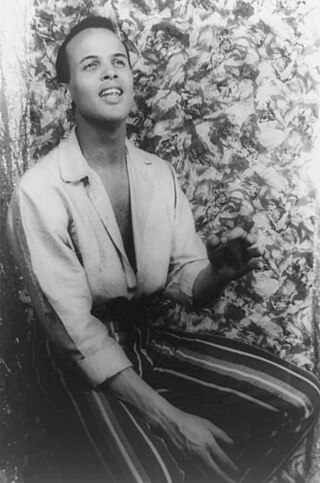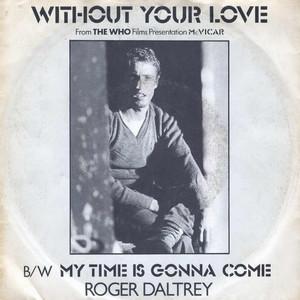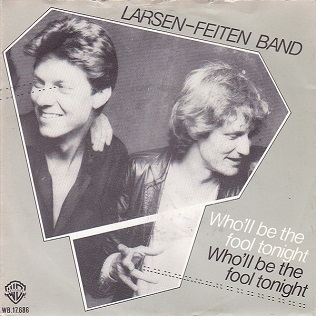Related Research Articles
A one-hit wonder is any entity that achieves mainstream popularity, often for only one piece of work, and becomes known among the general public solely for that momentary success. The term is most commonly used in regard to music performers with only one hit single that overshadows their other work. Some artists dubbed "one-hit wonders" in a particular country have had great success in other countries. Music artists with subsequent popular albums and hit listings are not properly considered a one-hit wonder, although artists with multiple hits have sometimes been erroneously labelled as "one-hit wonders" if one particular hit has become much more well-remembered years or decades later than their other hits. One-hit wonders usually see their popularity decreasing after their hit listing, and most often do not ever return to hit listings with other songs or albums.

Anthony Burrows is an English pop singer and recording artist. As a prolific session musician, Burrows was involved in several transatlantic hit singles throughout the late 1960s and early 1970s, most of which were one-hit wonders, including "Love Grows " by Edison Lighthouse, "United We Stand" by Brotherhood of Man, "My Baby Loves Lovin'" by White Plains, "Gimme Dat Ding" by The Pipkins and "Beach Baby" by The First Class. During 1970, four singles by four different acts for whom he performed all charted at or near the top of the UK Singles Chart and additionally reached the top 20 in the United States.

Apollo 100 was a short-lived British instrumental group, that had a U.S. Billboard Hot 100 top 10 hit with the Bach–inspired single "Joy" in 1972.

"Day-O " is a traditional Jamaican folk song. The song has mento influences, but it is commonly classified as an example of the better known calypso music.
Vince Martin was an American folk singer and songwriter.
A work song, "Pay Me My Money Down" originated among the Negro stevedores working in the Georgia Sea Islands. It was collected by Lydia Parrish and published in her 1942 book, Slave Songs of the Georgia Sea Islands:
The Tarriers were an American vocal group, specializing in folk music and folk-flavored popular music. Named after the folk song "Drill, Ye Tarriers, Drill", the group had two hit songs during 1956-57: "Cindy, Oh Cindy" and "The Banana Boat Song." The two singles became US Top Ten hits and peaked at No. 26 and No. 15 respectively in the UK Singles Chart.
The Wonder Who? was a nom de disque of The Four Seasons for four single records released from 1965 to 1967. It was one of a handful of "names" used by the group at that time, including Frankie Valli and The Valli Boys. Wonder Who? recordings generally feature the falsetto singing by Valli, but with a softer falsetto than on "typical" Four Seasons recordings.
Larry Santos is an American pop music singer-songwriter. Santos wrote songs for several American pop bands in the 1960s, including the 1963 hit "Candy Girl" for The Four Seasons which reached number 3 on Billboard Hot 100 chart. In the mid-Sixties, he recorded singles as part of a group called The Madisons, and then under his own name. He released three albums in the 1970s and scored one pop hit single, produced by Don Davis, "We Can't Hide it Anymore", which peaked on April 10, 1976, at number 36 on the Billboard Hot 100.

"Just One Look" is a song co-written by American R&B singers Doris Troy and Gregory Carroll. The recording by Doris Troy was a hit in 1963. The Hollies, Anne Murray, Linda Ronstadt and Iain Matthews each achieved great success with the song. There have also been many other versions.
"The Garden of Eden" is a song written and composed by Dennise Haas Norwood, and first recorded by Joe Valino, which reached Number 12 on the Billboard chart in October 1956. Valino recorded the song at his second session for Vik Records, a subsidiary of RCA. "I knew it would be a hit, even as I was recording it," he told Wayne Jancik in The Billboard Book of One-Hit Wonders.
The Crescendos were an early American rock and roll group from Nashville, Tennessee.
"Happy, Happy Birthday Baby" is a 1957 song written by Margo Sylvia & Gilbert Lopez. "Happy, Happy Birthday Baby" was originally performed by The Tune Weavers, who had their only hit with this song. Both Margo Sylvia and Gilbert Lopez were members of The Tune Weavers. The single went to number four on the R&B chart and went to number five on the Hot 100. The B-side of "Happy, Happy Birthday Baby, was The Tune Weavers version of "Ol' Man River".

"Without Your Love" is a song released in 1980 by Roger Daltrey of The Who written by Billy Nicholls and was a hit for him on his album McVicar. The song was included in the soundtrack of the film McVicar, a bio-pic of English bank robber John McVicar, that was produced by Daltrey and also featured him in the starring role. The original version of the song was by Billy Nicholls himself with his band White Horse in 1977.

"Coming to America" is a song used in the movie Coming to America, starring Eddie Murphy. It was written by Nile Rodgers and Nancy Huang and performed by the American music band The System. The song played in the movie during the closing credits.

"Waiting for Love" is a song by Canadian hard rock supergroup Alias, released in 1991 as the third single from their self-titled debut album (1990). Written by Brett Walker and Jeff Paris, the song peaked at number 4 in Canada, and number 13 on the US Billboard Hot 100.
"Baby Blue" is a song released in 1961 by The Echoes. It was written by Long Island assistant high school principal Sam Guilino and music teacher Val Lagueux. The song spent 12 weeks on the Billboard Hot 100 chart peaking at No. 12, while reaching No. 8 on Canada's CHUM Hit Parade. The song is noted for the Echoes spelling out the name of "Baby Blue" as "B B A B Y, B B L U E".

"Who'll Be the Fool Tonight" is a song by Neil Larsen and Buzz Feiten. It was released as a single in 1980 from their self-titled album.
"Holdin' On" is a song by Tane Cain from her self-titled 1982 debut album. The song reached No. 37 on the Billboard Hot 100, her only top 40 song. Author Wayne Jancik included the song in their book "The Billboard Book of One-hit Wonders".
References
- ↑ "Folk Era Records: The Tarriers". July 2001. Archived from the original on 2012-02-10. Retrieved 2010-01-24.
- ↑ Rose, Philip (2001). You Can't Do That on Broadway!: A Raisin in the Sun and Other Theatrical Improbabilities, by Philip Rose. Hal Leonard Corporation. ISBN 9780879109608 . Retrieved 2010-01-24.
- ↑ Parrish, Lydia; Slave Songs of the Georgia Sea Islands, New York: Creative Age (1942).
- ↑ Wayne Jancik, The Billboard Book of One-Hit Wonders, expanded first edition (Billboard Books, 1998) ISBN 0-8230-7622-9, pp. 26-27.